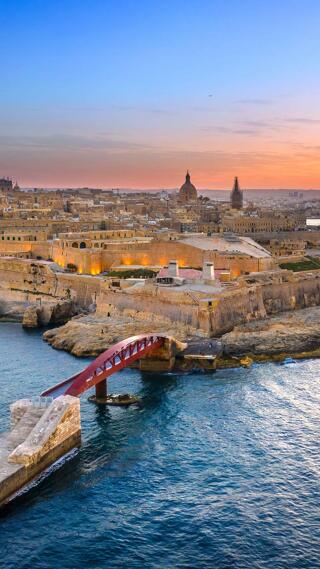The health system in Malta is managed by the Ministry of Health and Active Ageing, with most services provided for free. It is funded through workplace contributions, and the amount you pay depends on your income.
The health insurance system in Malta
Generally speaking, healthcare in Malta’s public system is available for citizens and residents who pay social security and social security contributions.
For EU citizens staying in Malta for extended periods, you need to submit an S1 form to obtain a 'certificate of entitlement' in order to use the public healthcare system.
Non-EU nationals must have a health insurance plan in place to live Malta. Then to be eligible for state healthcare, you should register as a resident (a requirement for those staying here for more than three months).
However, these rules don't apply to all circumstances. There are some instances where other requirements are necessary to access Malta's state healthcare - click here to find out more.
The health system is split into three different levels: primary, secondary and tertiary care. The first point of contact for expats is usually your GP, who can provide medical treatment and refer you to a specialist if needed. For secondary and tertiary care, an expat can seek help from one of the country’s public hospitals.
Examples of services that can be covered under the Maltese healthcare system include:
You can get certain medical treatment at pharmacies, such as for everyday illnesses. However, it’s important to remember that many pharmacies may be closed on Sundays.
To learn more, check out what it is like living in Malta as an expat.
Having private health insurance is an alternative option for those living in Malta, where you may opt for either local or international or international medical insurance.
With a local plan, expats can be covered for the cost of medical treatment in private facilities, but this is limited to the country where the policy was purchased.
An international health insurance plan is designed to be more flexible, allowing the holder to seek medical treatment in multiple countries within their area of cover. This can be particularly useful for those who travel abroad frequently.







